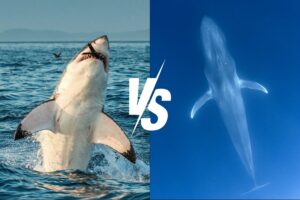
Octopus vs Squid: A Comprehensive Comparison
Octopuses and squids are two of the most intriguing marine creatures belonging to the class Cephalopoda. Both exhibit remarkable intelligence, unique adaptations, and fascinating behaviors, yet they differ significantly in anatomy, habitat, and lifestyle. This article explores these differences in detail, providing an extensive overview of octopuses and squids, along with a FAQ section to address common questions.
Overview of Cephalopods
Cephalopods are a class of mollusks that include octopuses, squids, cuttlefish, and nautiluses. They are characterized by their bilateral body symmetry, a prominent head, and tentacles. The term “cephalopod” means “head-foot,” which refers to the way their limbs are positioned around their heads.
Classification
- Octopus: Belongs to the order Octopoda.
- Squid: Belongs to the order Teuthida.
Physical Characteristics
| Feature | Octopus | Squid |
|---|---|---|
| Body Shape | Rounded head (mantle), soft-bodied | Elongated body (mantle), with fins |
| Arms/Tentacles | Eight arms with suckers | Eight arms plus two long tentacles |
| Internal Structure | No internal skeleton | Internal pen (chitinous structure) |
| Size | Ranges from 1 cm to 9 m | Ranges from 60 cm to over 20 m |
| Coloration | Can change color for camouflage | Also capable of changing color |
Habitat and Distribution
Both octopuses and squids inhabit various marine environments but prefer different habitats:
- Octopus: Typically found in coastal waters, coral reefs, and rocky seabeds. They often create dens in crevices or under rocks for shelter.
- Squid: Found in open ocean environments, from surface waters to deep-sea regions. They are more pelagic than octopuses and can be found swimming freely or in schools.
Feeding Habits
Octopus Feeding Behavior
Octopuses primarily feed on crustaceans, mollusks, and small fish. They use their strong beaks to break open shells and consume their prey. Their arms are lined with sensitive suckers that help them grasp and manipulate food.
Squid Feeding Behavior
Squids are carnivorous predators that primarily feed on fish, shrimp, and other cephalopods. They use their two longer tentacles to capture prey quickly and then bring it to their beak-like mouths for consumption.
Reproduction
The reproductive strategies of octopuses and squids differ significantly:
- Octopus Reproduction: Mating occurs when the male uses a specialized arm (hectocotylus) to transfer sperm to the female. After fertilization, females lay thousands of eggs in a den and guard them until they hatch. Most female octopuses die shortly after their eggs hatch.
- Squid Reproduction: Squids typically reproduce in groups. Males display courtship behaviors to attract females. After mating, females deposit eggs on substrates like rocks or corals without further parental care.
Behavior and Intelligence
Both octopuses and squids exhibit high levels of intelligence among invertebrates:
- Octopus Intelligence: Known for problem-solving abilities and complex behaviors. They can navigate mazes, use tools, and exhibit playfulness.
- Squid Intelligence: Also display advanced behaviors such as communication through color changes and coordinated movements within schools.
Defense Mechanisms
Both species have evolved unique defense mechanisms:
- Octopus Defense: Can change color and texture to blend into their surroundings. They can also eject ink as a smokescreen to escape predators.
- Squid Defense: Similar ink ejection abilities; some species can also produce bioluminescent displays to confuse predators.
Lifespan
The lifespan of these cephalopods varies:
- Octopus Lifespan: Generally short-lived; most species live between 1 to 3 years. Some larger species can live up to 5 years.
- Squid Lifespan: Varies widely among species; many live only 1 to 2 years while some larger species may live up to 5 years.
Conservation Status
Both octopuses and squids face threats from overfishing, habitat destruction, and climate change:
- Octopus Conservation: Many species are not currently threatened; however, habitat loss poses risks.
- Squid Conservation: Some squid populations are overfished due to high demand in fisheries; sustainable practices are essential for their conservation.
Differences Between Octopus and Squid
- Body Structure: Octopuses have a bulbous body with no fins; squids have an elongated body with fins.
- Tentacles vs. Arms: Octopuses have eight arms; squids have eight arms plus two additional long tentacles.
- Habitat Preference: Octopuses prefer benthic environments; squids are more pelagic.
- Reproductive Strategies: Octopuses provide parental care; squids do not.
Frequently Asked Questions (FAQ)
1. What is the main difference between an octopus and a squid?
The primary difference is that octopuses have eight arms without tentacles while squids have eight arms plus two additional long tentacles.
2. Are octopuses more intelligent than squids?
Both exhibit high intelligence; however, octopuses are often regarded as more intelligent due to their problem-solving skills and ability to use tools.
3. Can both octopuses and squids change color?
Yes, both can change color for camouflage or communication purposes due to specialized pigment cells called chromatophores.
4. Where do octopuses typically live?
Octopuses usually inhabit coastal waters near the seabed in dens created in rocks or coral.
5. How do squids move through the water?
Squids use jet propulsion by expelling water through a siphon for rapid movement through the water column.
Conclusion
Understanding the differences between octopuses and squids enriches our knowledge of these remarkable cephalopods. While they share many similarities as members of the same class, their distinct anatomical features, behaviors, habitats, and reproductive strategies highlight their unique adaptations to marine life.For more detailed information about octopuses and squids, you can visit Wikipedia which provides valuable insights into their biology and conservation status.




